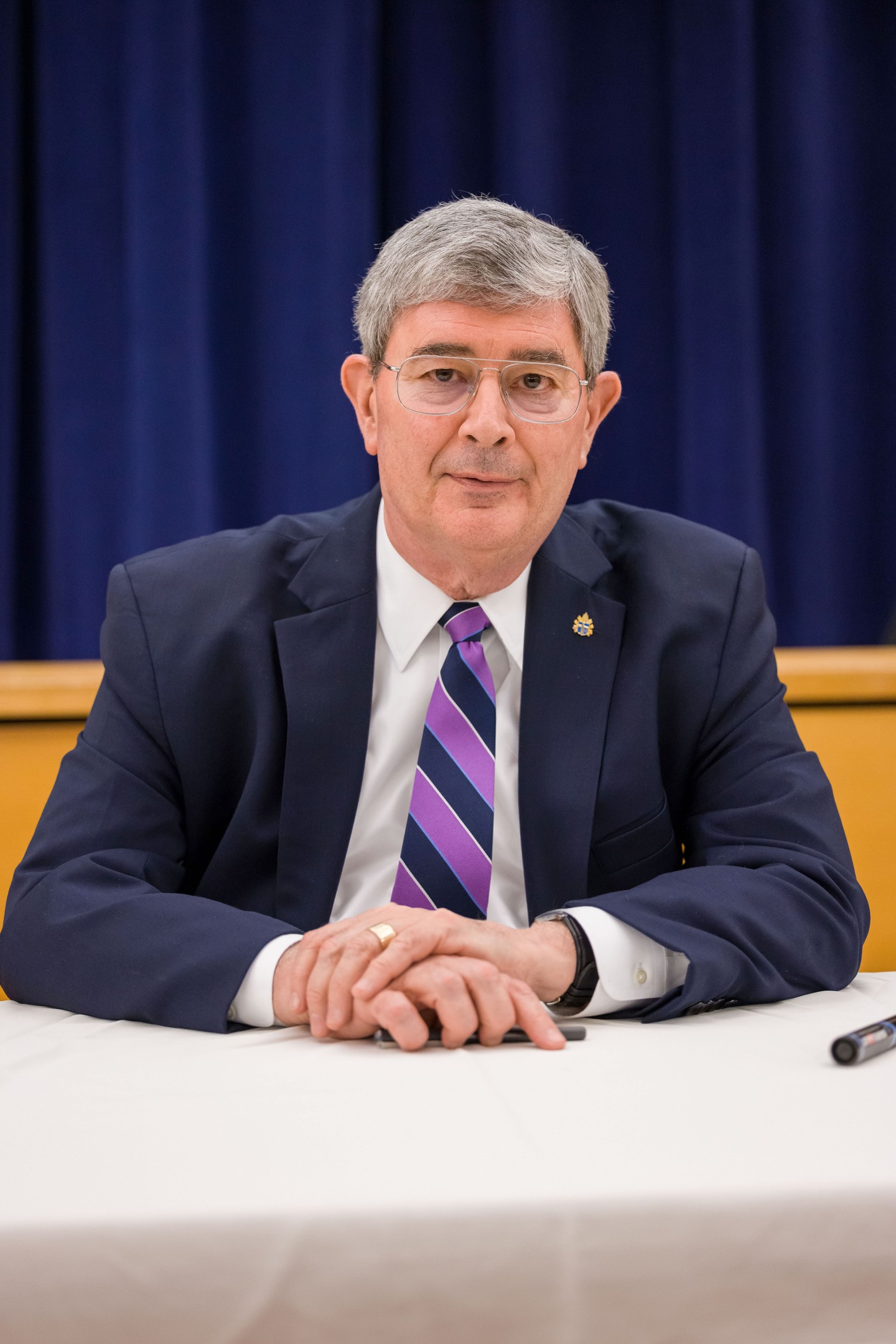Ever since the 1596 Union of Brest re-established full communion between the Bishop of Rome and several ecclesiastical jurisdictions in Eastern Europe, what we know today as the Ukrainian Greek Catholic Church (UGCC), the principal heir to that act of reconciliation, has suffered greatly for its fidelity to the Successor of Peter.
For centuries, many Polish Catholic leaders bent every effort to “Latinize” the Greek Catholics in terms of liturgy, church discipline, and governance. The Russian Orthodox Church (ROC), always an agent of political and cultural imperialism in the Ukrainian lands, never conceded the legitimacy of the Union of Brest. And in 1946, the ROC cooperated with the militantly atheistic Soviet regime to “dissolve” the UGCC legally, in a bogus church council conducted under the baton of the Soviet secret police, the NKVD.
Thus from 1946 until 1990–1991, the UGCC clung to life as a clandestine body, even as many of its bishops, priests, monks, nuns, and laity were executed outright or perished in the Soviet Gulag slave-labor camps. Nor was Rome always as vocal in support of the Ukrainian Greek Catholic faithful as it might have been during the UGCC’s four and a half decades underground. Pope John XXIII did get the head of the UGCC, Josyf Slipyi, out of the Gulag, but Paul VI, eager for a rapprochement with Russian Orthodoxy, kept Slipyi somewhat at arm’s length during the Ukrainian archbishop’s exile in Rome—a papal distancing from a white martyr and his Church that only ended with the election of John Paul II in 1978.
Yet amidst this immense suffering, the UGCC has remained faithful to its communion with the See of Peter. And in the three decades since the dissolution of the Soviet Union and the recovery of Ukrainian independence, the UGCC has become arguably the most vibrant Christian community in Ukraine—one with ideas about true religious freedom and proper Church-state relations that a postwar Ukraine will need on its path to democratic maturity. Those ideas are nurtured, in part, by the remarkable Ukrainian Catholic University in L’viv, the only such institution of higher learning in the former Soviet space and the most widely respected university in embattled Ukraine.
Thus it was no surprise that the people of the UGCC (and Ukrainians in general) were appalled when Pope Francis, in recent off-the-cuff remarks to young Russian Catholics, urged them to draw on the best of Russian history and culture in building their country’s future—and then, eighteen months into a brutal Russian imperial war on and in Ukraine, cited as exemplars of Russian greatness Peter the Great and Catherine the Great, two historical embodiments of aggressive Russian imperialism.
No reasonable person imagines that the pope was endorsing the imperial aggressions of Peter the Great and Catherine the Great; papal malapropisms (and subsequent “clarifications”) have become achingly familiar in recent years. But if Francis wanted to lift up models of “Russian greatness,” why reach back to the czarist aggressors of the eighteenth century? Why not commend the theological, spiritual, and literary genius of Vladimir Solovyov, prophet of ecclesial reconciliation between Catholicism and Orthodoxy and a significant influence on the flourishing of Russian Orthodox theology in Paris after the Bolshevik Revolution? Why not Andrei Sakharov, father of the Soviet hydrogen bomb turned human rights activist and conscience of the Russian democratic opposition in the last years of the Soviet Union? Why not the innumerable martyrs of the Russian Orthodox Church in the 1920s, who, unlike today’s ROC leadership, did not play chaplain to the Kremlin? Why not the brilliant and courageous poet Anna Akhmatova, a fierce critic of Stalinism who nonetheless remained in the Soviet Union to bear witness to the truth of what was happening there? Each of these great Russians exemplified the decency and honesty desperately needed in twenty-first-century Russia. Clinging to the historical mythology embodied in Peter the Great and Catherine the Great is exactly what contemporary Russia doesn’t need.
Pope Francis’s ill-advised comments (which were of course lauded by warlord Vladimir Putin’s propagandists) caused great suffering to some of the most heroic and faithful Catholics in the world. Neither did they do good service to the UGCC leadership in its efforts to bring the truths of Catholic social doctrine to Ukraine. The Ukrainian Greek Catholic Church has more than earned the solidarity it has a right to expect from Rome. It has paid for its fidelity to Peter in blood. It must be hoped that the future leadership of the Catholic Church understands this—and both speaks and acts accordingly.
George Weigel’s column “The Catholic Difference” is syndicated by the Denver Catholic, the official publication of the Archdiocese of Denver.

George Weigel is Distinguished Senior Fellow of Washington, D.C.’s Ethics and Public Policy Center, where he holds the William E. Simon Chair in Catholic Studies.
First Things depends on its subscribers and supporters. Join the conversation and make a contribution today.
Click here to make a donation.
Click here to subscribe to First Things.
Image by NatashaRosaAmormino licensed via Creative Commons. Image cropped.
You have a decision to make: double or nothing.
For this week only, a generous supporter has offered to fully match all new and increased donations to First Things up to $60,000.
In other words, your gift of $50 unlocks $100 for First Things, your gift of $100 unlocks $200, and so on, up to a total of $120,000. But if you don’t give, nothing.
So what will it be, dear reader: double, or nothing?
Make your year-end gift go twice as far for First Things by giving now.


